Student Academic

How can schools improve student mental health ?
Improving student mental health is crucial for academic success and overall well-being. Schools can help by creating a supportive environment, implementing mental health programs, providing access to resources, promoting healthy habits, addressing bullying and harassment, offering extracurricular activities, monitoring academic pressure, and encouraging self-care. By implementing these strategies, schools can create an environment that supports the mental health of all students, allowing them to thrive both academically and personally.
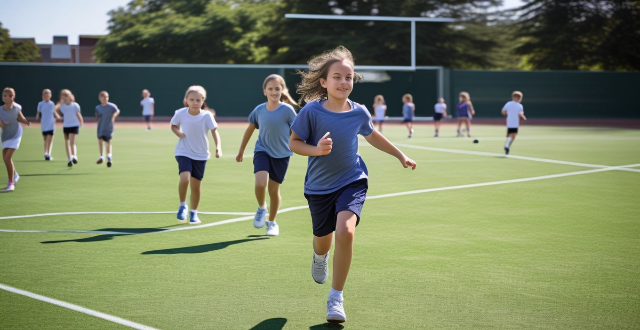
In what ways can schools encourage participation in sports without sacrificing academic rigor ?
Participation in sports is an essential aspect of a student's overall development. However, schools often face the challenge of balancing academic rigor with sports participation. This article discusses ways schools can encourage participation in sports without sacrificing academic rigor, including integrating sports into the curriculum, providing support for student-athletes, promoting a culture of wellness, collaborating with parents and community members, and offering incentives for academic success. By implementing these strategies, schools can create an environment where students can thrive both academically and athletically.

How does a strong emphasis on athletics affect student performance in other subjects ?
The text discusses the various ways in which a strong emphasis on athletics can influence academic achievements, considering factors such as time allocation, mental health, motivation, and social dynamics. While it can present challenges such as reduced study time and increased stress, it also offers benefits like improved time management and enhanced motivation. Schools and educators should strive to create a balanced environment where both athletics and academics are supported, ensuring that students can excel in all aspects of their education.

What are the benefits of combining sports with academic education for students ?
The integration of sports with academic education provides students with numerous benefits, including improved physical health, mental well-being, academic performance, social development, and life skills. Regular physical activity through sports enhances fitness levels, reduces the risk of chronic diseases, and increases energy, leading to better focus and productivity in academic pursuits. Additionally, sports offer stress relief, improved mood, and better sleep habits, contributing to mental health. Academically, sports have been linked to enhanced cognitive function, time management skills, and increased discipline. Socially, sports foster teamwork, leadership opportunities, and broadened social networks. Finally, sports teach goal setting, resilience, and adaptability, essential life skills for success. Incorporating sports into education creates a well-rounded foundation for student development and success.

How important is student-teacher ratio in school selection ?
The student-teacher ratio is a crucial factor in school selection, impacting academic performance, personal attention, and classroom management. A lower ratio allows for individual attention, customized learning, and timely feedback, promoting better understanding and improved academic performance. It also creates opportunities for mentorship, emotional support, and social development, contributing to a positive learning environment. Effective classroom management is more feasible with a lower ratio, leading to reduced discipline issues, increased participation, and flexible teaching strategies. Prioritizing schools with favorable ratios can contribute to a successful educational journey.
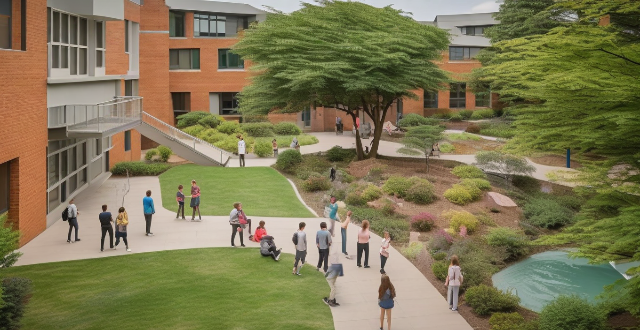
How do I compare different schools based on their academic performance ?
When comparing different schools based on their academic performance, consider factors such as school rankings, standardized test scores, graduation rates and college acceptance rates, availability of advanced placement (AP) courses and dual enrollment options, extracurricular activities and clubs, student-teacher ratio and class size, and reviews from current and former students, parents, and educators.

How do online learning platforms enhance student engagement and performance ?
The article discusses how online learning platforms enhance student engagement and performance. It mentions personalized learning experiences, interactive content and multimedia, collaboration and communication tools, gamification and rewards, flexibility and convenience, and immediate feedback and support as key features of these platforms that contribute to improved student outcomes.

What are the consequences of violating academic integrity principles ?
Violating academic integrity principles can lead to serious consequences on both individual and institutional levels, including academic penalties, damage to reputation, difficulty gaining acceptance into programs or securing employment, emotional distress, and potential loss of accreditation for institutions. It is essential for students to understand the importance of maintaining academic integrity to protect their personal and professional futures, as well as the reputation of their educational institutions.
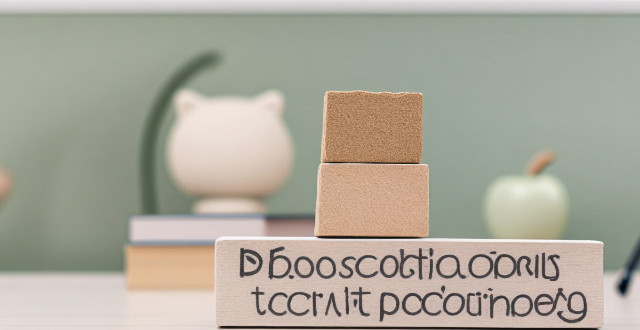
How does educational psychology impact student learning ?
Educational psychology plays a crucial role in understanding and enhancing student learning. It helps educators understand cognitive development, enhance motivation and engagement, promote social-emotional learning, address diverse learning needs, and evaluate teaching strategies and interventions. By incorporating insights from educational psychology into their practice, teachers can create a more effective and supportive learning environment for all students.

What factors determine the amount of a student loan ?
The amount of a student loan is determined by several key factors, including eligibility criteria set by the lender, the cost of attendance at the chosen school, the student's financial need, and the type of loan (federal or private). Other influential factors include repayment options, school choice, and the availability of other financial aid. Students should consider all these elements and explore all possible funding options before taking out a loan.
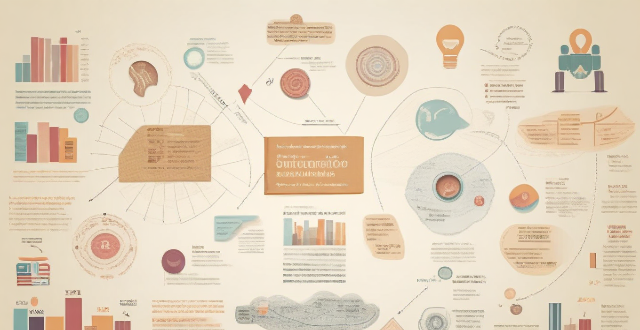
What impact does multicultural education have on student achievement ?
The article discusses the impact of multicultural education on student achievement. It states that this type of education increases students' cultural awareness and sensitivity, enhances their critical thinking skills, and improves academic performance. Students become more aware of their own cultural biases and learn to appreciate diversity, leading to better relationships with peers and teachers. Multicultural education also encourages students to question authority figures and challenge dominant narratives, promoting independent thought and creativity. Research has shown that when students feel valued and respected for their unique cultural backgrounds, they are more likely to engage in learning activities and perform well academically. Overall, multicultural education creates an inclusive learning environment that promotes equity, social justice, and respect for all cultures, preparing students for success in an increasingly diverse world.

What is academic integrity ?
Academic integrity is a fundamental principle governing the conduct of research, teaching, and learning in academic institutions. It encompasses values and ethical standards promoting honesty, fairness, respect, and responsibility among students, educators, and researchers. The goal is to maintain trustworthiness and credibility by adhering to high ethical standards. Core values include honesty, fairness, respect, and responsibility. Key aspects are avoiding plagiarism, fabrication, cheating, multiple submissions, and collusion. Violating academic integrity can lead to loss of reputation, disciplinary action, legal consequences, diminished career prospects, and ethical implications. Adhering to academic integrity promotes a fair and just academic environment.

How can educational technology enhance student engagement ?
The text discusses how educational technology can enhance student engagement. It outlines various methods such as personalized learning, interactive content, collaborative tools, real-time feedback, and flexible learning options that educators can use to improve student participation and performance in the classroom.

Are there any cultural differences in perceptions of academic integrity ?
The perception of academic integrity can vary across cultures due to differences in values, beliefs, and practices. In individualistic cultures, academic integrity is often viewed as an individual responsibility, while collectivist cultures place more emphasis on group harmony and cooperation. Power distance can also influence perceptions of academic integrity, with high power distance cultures being more reluctant to report instances of academic dishonesty. The concept of time can also play a role, with monochronic cultures prioritizing efficiency over quality, while polychronic cultures focus on building relationships. Attitudes towards rules and regulations can also vary across cultures, with rule-based cultures viewing academic integrity as a set of strict rules, while relation-based cultures view it as something that depends on the relationship between individuals. Understanding these cultural differences can help educators design effective strategies to promote academic integrity among diverse student populations.
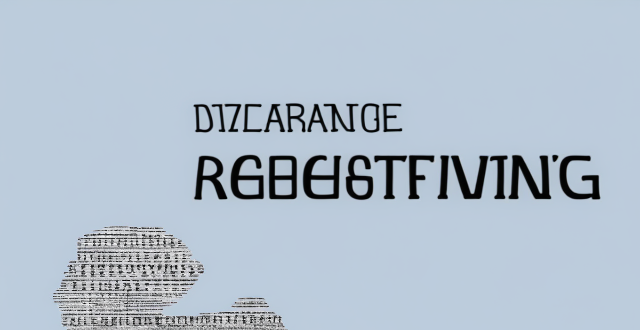
How can students maintain academic integrity in their studies ?
The text discusses the importance of maintaining academic integrity in education and outlines several ways for students to do so. It emphasizes understanding the concept of academic integrity, adhering to school policies, citing sources properly, avoiding plagiarism, being honest in assessments, respecting intellectual property rights, maintaining confidentiality, reporting incidents of misconduct, and seeking help when needed. The text concludes that maintaining academic integrity is crucial for students to achieve success in their academic pursuits and beyond.

Can you give examples of academic dishonesty ?
Academic dishonesty refers to any behavior that compromises the integrity of academic work. It can take many forms, including cheating, plagiarism, falsification of data, and improper collaboration on assignments. Such actions not only undermine the trustworthiness of academic institutions but also hinder students' learning and development. Some examples of academic dishonesty include using cheat sheets or notes during exams, copying from others, using unauthorized devices, impersonation, submitting another's work as your own, unauthorized collaboration, direct plagiarism, mosaic plagiarism, fabrication, manipulation, selective reporting, group assignments as individual work, and unequal contribution. Engaging in academic dishonesty can lead to serious consequences, such as failure of the assignment or course, suspension or expulsion from school, and damage to reputation and future opportunities. It is essential for students to understand the importance of academic integrity and the long-term impact of their actions. By maintaining honesty in their academic pursuits, they ensure a fair and trustworthy educational environment for all.

What is the impact of ongoing professional development on teacher performance and student outcomes ?
The text discusses the importance of ongoing professional development (PD) for teachers in enhancing their performance and improving student outcomes. It outlines five main areas where PD has a significant impact: 1. **Enhanced Teacher Knowledge and Skills**: PD programs strengthen teachers' subject matter expertise and pedagogical approaches, leading to more informed teaching practices. 2. **Improved Teaching Practices**: PD sessions cover effective classroom management techniques and assessment strategies, helping teachers create a positive learning atmosphere and accurately evaluate student progress. 3. **Increased Job Satisfaction and Motivation**: Participating in PD activities keeps teachers engaged and motivated, reducing burnout rates and increasing job satisfaction. 4. **Positive Impact on Student Outcomes**: Well-trained teachers are more effective at delivering quality instruction, which directly translates to improved academic performance among students. 5. **Adaptability to Change**: PD helps teachers stay current with technological advancements and educational reforms, ensuring they deliver relevant content to students. In conclusion, investing in ongoing professional development for teachers is crucial for educators and has a profound impact on student success.

Are there alternatives to taking out a student loan for college expenses ?
There are several alternatives to student loans for covering college expenses, including scholarships and grants, work-study programs, employer tuition assistance, military benefits, and crowdfunding and community support. Scholarships and grants are typically awarded based on academic merit or financial need, while work-study programs allow students to earn money through part-time jobs. Employer tuition assistance programs may cover all or a portion of tuition costs, and serving in the military can provide access to educational benefits like the GI Bill. Crowdfunding platforms and community organizations can also provide financial support for students in need.
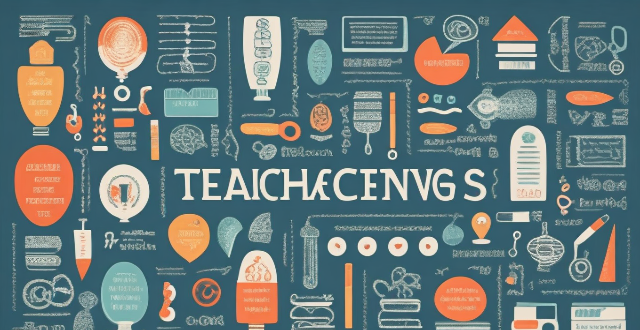
What are some innovative teaching methods that can enhance student engagement ?
Innovative teaching methods, including Project-BasedInnovative teaching methods, including Project-Basedroom, Gaming and Simulation Gaming and Simulations, Peer Teaching and Tutoring, Technology Integration, and Service Learning, are designed to enhance student engagement by fostering critical thinking, problem-solving, collaboration, and real-world application of knowledge. These approaches aim to make learning more interactive, relevant, and enjoyable for students, ultimately contributing to their academic success and personal growth.

How do extracurricular sports activities contribute to overall student development ?
The text discusses the importance of extracurricular sports activities in student development. It highlights that these activities not only promote physical fitness but also contribute to various aspects of personal growth, including social skills, leadership abilities, and time management. The author explains how participating in sports can help students maintain good physical health, develop social skills through teamwork, foster leadership abilities, and learn effective time management skills. The text concludes that extracurricular sports activities are an essential component of overall student development as they offer numerous benefits beyond just physical fitness.

How do academic competitions contribute to a student's overall development ?
This article discusses the benefits of academic competitions in contributing to a student's overall development. It highlights how these competitions enhance academic achievement by boosting confidence, developing critical thinking skills, and encouraging independent learning. The article also emphasizes the role of academic competitions in promoting personal growth by building resilience, promoting teamwork, and developing time management skills. Furthermore, it points out how these competitions contribute to professional development by exploring potential career paths, gaining recognition and awards, and expanding networking opportunities. Overall, the article concludes that participating in academic competitions provides students with valuable experiences that can benefit them throughout their lives.
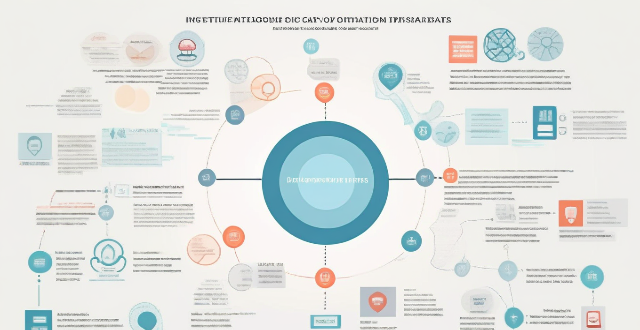
How can educational institutions use data analytics to improve student outcomes ?
Educational institutions can use data analytics to improve student outcomes by identifying areas of focus such as performance tracking, curriculum analysis, and student engagement. Implementing data-driven strategies like personalized learning, predictive analytics, and resource allocation can further enhance student success. Continuous evaluation and collaboration are key to measuring success and making necessary adjustments.

How do academic competitions impact a student's future career prospects ?
Academic competitions play a crucial role in shaping students' future career prospects by developing essential skills, providing networking opportunities, and offering recognition and awards. These competitions foster critical thinking, time management, collaboration, and teamwork, which are highly valued by employers across all industries. Participating in academic competitions also allows students to connect with industry professionals and build professional relationships with their peers and competitors. Winning or performing well in these competitions can boost a student's resume and attract scholarships and grants for further education. Overall, academic competitions provide valuable experiences that can help students stand out to potential employers and lay the foundation for a successful career in their chosen field.

How does sports education impact academic performance and cognitive abilities ?
Sports education has a positive impact on academic performance and cognitive abilities by improving attention, concentration, learning abilities, reducing stress levels, enhancing time management skills, and increasing discipline and responsibility.

What are the different types of academic competitions available ?
Academic competitions are structured events where students can showcase their knowledge, skills, and talents in various subjects. They provide a platform for students to test their abilities, gain recognition, and potentially earn scholarships or other rewards. These competitions are crucial for developing critical thinking, problem-solving, and teamwork skills. There are various types of academic competitions, including mathematics, science, literature and language, social sciences, and technology and engineering. Each category has national and international competitions that challenge and stimulate high school students.

What is the importance of building a strong parent-teacher relationship in supporting student learning ?
The Importance of Building a Strong Parent-Teacher Relationship in Supporting Student Learning Building a strong parent-teacher relationship is crucial for supporting student learning. This partnership between parents and teachers can have a significant impact on a child's academic success, social development, and overall well-being. A strong parent-teacher relationship fosters open and effective communication channels, creates a supportive learning environment, promotes shared responsibility for a student's education, and cultivates positive attitudes toward education. By working together, parents and teachers can help students reach their full potential and prepare them for success in all aspects of life.
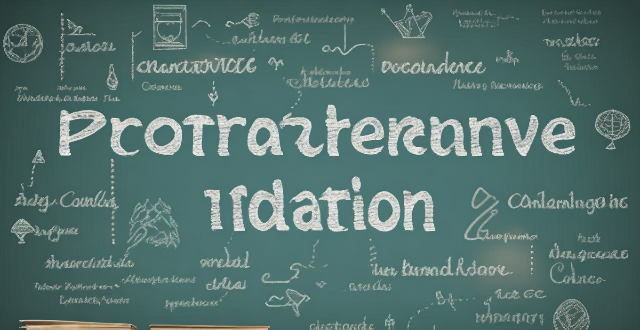
How do I apply for a student loan ?
This text provides a comprehensive guide on how to apply for a student loan. It outlines nine steps, including determining needs, researching loan options, checking eligibility requirements, gathering documents, completing and submitting the application form, waiting for approval, signing promissory notes and loan agreements, and receiving disbursement of loan funds. The guide emphasizes the importance of understanding different loan options and their terms and conditions before applying. It also highlights the need to gather all necessary documents and provide accurate information in the application form. Overall, this text is an essential resource for students seeking financial assistance for their education.

How can educators balance the importance of physical fitness with academic achievement ?
Balancing physical fitness and academic achievement in education is crucial for fostering well-rounded individuals. Educators can promote a holistic approach, set realistic expectations, implement strategies such as smart scheduling and cross-curricular learning, create a supportive environment with adequate resources and parental involvement, assess and recognize progress in both areas, role model healthy habits, and continuously improve their approach based on feedback. By doing so, students can receive an education that nurtures both the body and mind, preparing them for success in all aspects of life.
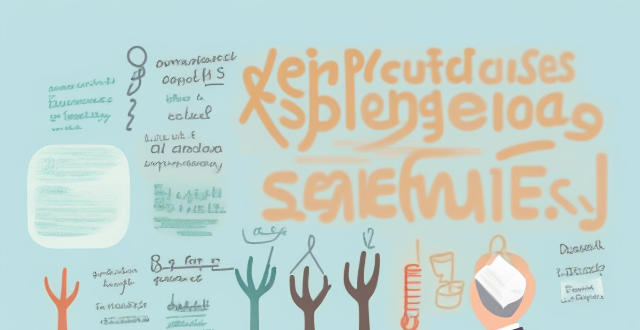
How can students with English as a second language be supported in understanding and applying academic integrity standards ?
The text discusses the importance of supporting students with English as a second language (ESL) in understanding and applying academic integrity standards. It outlines four key strategies for doing so: providing clear explanations, accessible resources, open communication, and extra support. Clear explanations should cover what constitutes academic dishonesty, the consequences of violations, and how to avoid dishonesty. Accessible resources such as glossaries, guides, and videos can help ESL students understand these concepts better. Encouraging open communication between students and instructors can address concerns and questions about academic integrity. Providing extra support through tutoring services, workshops, and peer mentoring programs can further assist ESL students in adhering to academic integrity standards.
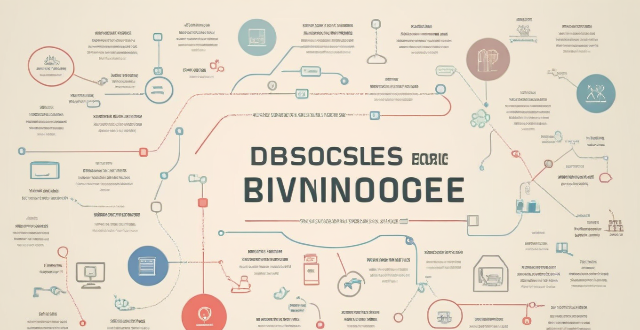
What is the difference between academic and non-academic writing ?
The article discusses the differences between academic and non-academic writing in terms of purpose, audience, style, structure, and language features. Academic writing aims to convey complex ideas and research findings to a specialized audience using formal, objective, and precise language, while non-academic writing focuses on informing, entertaining, or persuading a general audience using informal, subjective, and general language. The structure of academic writing is rigid and includes detailed analysis and extensive citations, whereas non-academic writing has a flexible structure, narrative style, and limited references. Language features also differ, with academic writing using complex sentences, passive voice, and abstract concepts, while non-academic writing prefers simple sentences, active voice, and concrete examples.